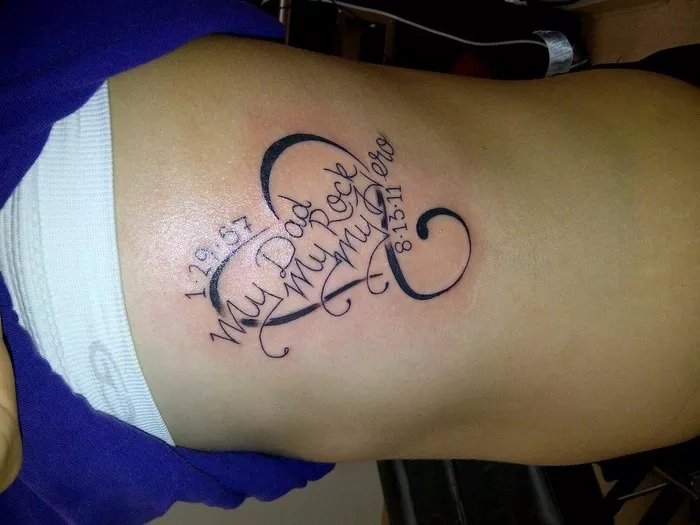Tattoos have become increasingly popular over the years, with people expressing themselves through various designs and styles inked onto their skin. However, there are times when individuals may attempt to use pen ink as a temporary solution or as a base for a permanent tattoo. This practice raises concerns among tattoo artists and enthusiasts alike, prompting the question: can you tattoo over pen ink? In this comprehensive article, we will delve into the risks and considerations associated with tattooing over pen ink, providing valuable insights for both tattoo artists and those considering getting inked.
Understanding Pen Ink: Composition and Properties
Before delving into the feasibility of tattooing over pen ink, it’s essential to understand the composition and properties of pen ink. Pen ink typically consists of pigments or dyes suspended in a solvent, which allows the ink to flow smoothly onto paper or other surfaces. However, the ingredients in pen ink can vary widely depending on the type of pen and manufacturer.
In general, pen ink is not formulated or tested for use on the skin. Unlike tattoo ink, which is specifically designed for use in the dermis layer of the skin, pen ink may contain chemicals and additives that are not suitable for injection into the skin. Additionally, pen ink may not be as stable or long-lasting as tattoo ink, leading to potential issues with fading, migration, and adverse reactions.
Risks and Complications of Tattooing Over Pen Ink
Tattooing over pen ink poses several risks and complications that both tattoo artists and clients should be aware of before proceeding. These risks include:
1. Allergic Reactions: Pen ink may contain ingredients that can cause allergic reactions when injected into the skin. Allergic reactions can range from mild irritation to severe inflammation and may require medical attention.
2. Infection: Tattooing over pen ink can introduce bacteria and other pathogens into the skin, increasing the risk of infection. Improper sterilization of tattoo equipment or poor hygiene practices can further exacerbate this risk.
3. Ink Migration: Unlike tattoo ink, which is formulated to remain in the dermis layer of the skin, pen ink may not bind effectively to the skin’s tissue. This can result in ink migration, where the ink spreads beyond the intended tattoo design, leading to blurred lines and distorted imagery.
4. Fading and Discoloration: Pen ink is not designed to withstand the rigors of tattooing, including the healing process and exposure to sunlight. As a result, tattoos created using pen ink may fade more quickly and develop a discolored appearance over time.
5. Difficulty in Cover-Ups and Corrections: Tattooing over pen ink can pose challenges for tattoo artists, particularly when attempting cover-ups or corrections. The presence of pen ink beneath the skin can interfere with the application of new ink, leading to uneven coloration and poor tattoo quality.
Professional Recommendations and Best Practices
Given the potential risks and complications associated with tattooing over pen ink, it is generally not recommended by professional tattoo artists. Instead, individuals seeking tattoos should opt for reputable tattoo studios that use high-quality, sterile tattoo ink and adhere to strict safety protocols.
For those who have already applied pen ink to their skin and are considering tattooing over it, it is crucial to consult with an experienced tattoo artist before proceeding. The tattoo artist can assess the condition of the skin, evaluate the quality of the existing ink, and provide recommendations based on their expertise.
In some cases, the tattoo artist may recommend laser tattoo removal or other corrective procedures to remove the pen ink before applying a new tattoo. Laser tattoo removal can effectively break down the ink particles in the skin, allowing for better results and reducing the risk of complications.
Conclusion
While it may be tempting to use pen ink as a temporary solution for tattoos, the risks and complications associated with tattooing over pen ink far outweigh any potential benefits. Pen ink is not formulated or tested for use on the skin and can lead to allergic reactions, infection, ink migration, and other issues.
For safe and high-quality tattoos, individuals should seek out reputable tattoo studios staffed by experienced artists who use sterile equipment and high-quality tattoo ink. Consultation with a professional tattoo artist is essential for evaluating the feasibility of tattooing over existing pen ink and determining the best course of action for achieving desired results.
Ultimately, the decision to get a tattoo should be made thoughtfully and with careful consideration of the potential risks involved. By prioritizing safety and working with knowledgeable professionals, individuals can enjoy beautiful and long-lasting tattoos without compromising their health or well-being.

